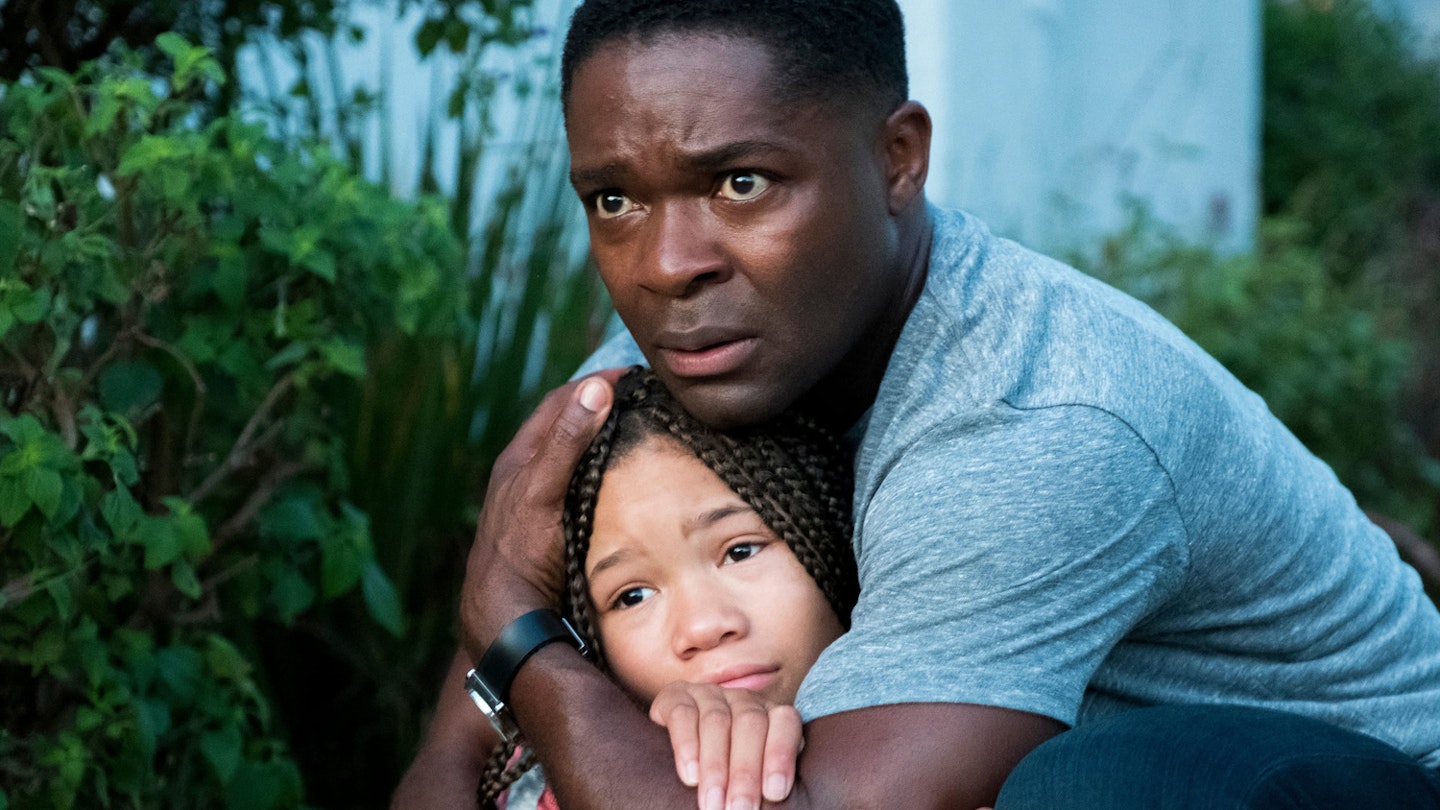There are very few films that turn on a garlic chicken but Don’t Let Go has a key plot point built around the Greek cuisine staple. It’s one of the few notes of originality in a typically high-concept idea from horror outfit Blumhouse that should be far more engaging than it turns out to be.
The film has a grave airless quality that doesn’t do anything to enliven the potentially sparky idea.
David Oyelowo stars as Jack Radcliff, an LA detective who shares a close bond with his niece Ashley (Reid). His world is turned upside down when he discovers her and her parents brutally slaughtered at a bloodied crime scene. At this point, Don’t Let Go morphs into a supernatural story as Jack starts to get calls from Ashley on his cell and engages in some intriguing experiments to figure out what is going on. With the help of garlic chicken, he figures out he is talking to Ashley several days before the murder takes place so the film switches again into a time-travel detective story which becomes its most compelling aspect: Jack racing against the clock to discover Ashley’s murderer without frying her brain by telling her he is living in her future.
Yet in its second half the film adds another genre to its mix: cop drama. Jack’s partner Bobby (Mykelti Williamson, who should earn a gold watch for service to playing policeman) and superior (Alfred Molina) begin to question his sanity with Internal Affairs grilling Jack about his role in the murder. This plot thread feels the most bog standard, a routine run through warehouse shootouts, foot chases down alleys and confrontations on wastelands.
Directed by Jacob Aaron Estes, AWOL since 2004’s Mean Creek, the film has a grave airless quality that doesn’t do anything to enliven the potentially sparky idea. While Oyelowo and Reid do their best to anchor the story with feeling — their opening interplay is engaging — the characters themselves lack nuance and personality. This is compounded by a dreary feel to the filmmaking, never really solving the film’s knotty problem: how do you make two people talking on a phone — albeit it living four days apart — cinematic.
